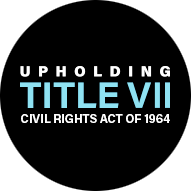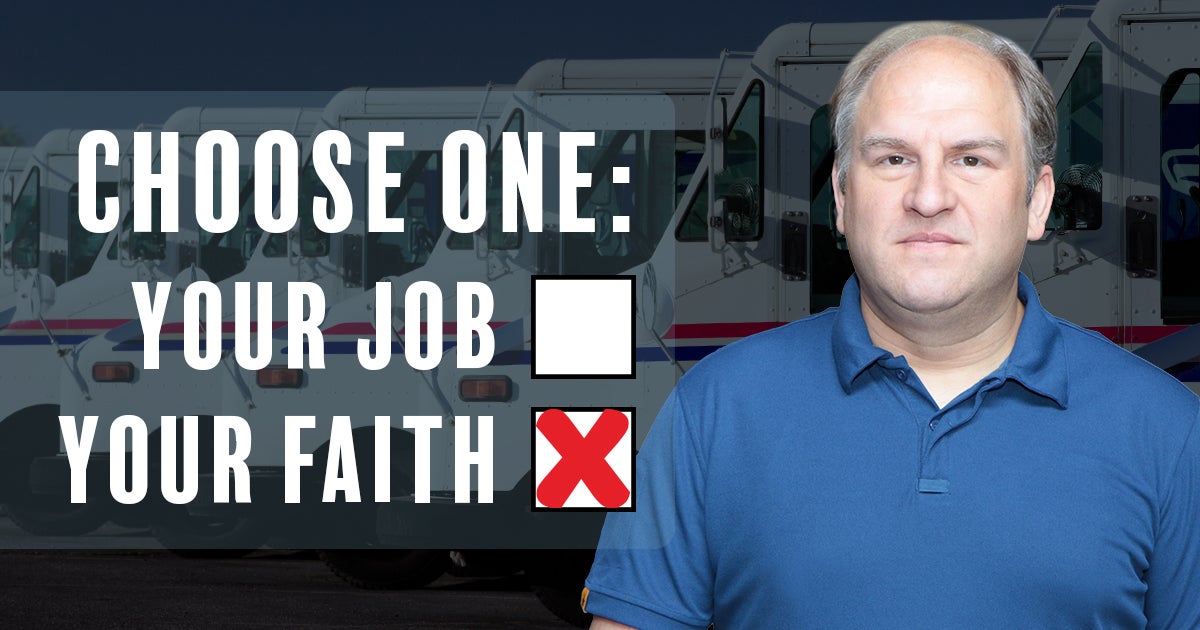
Gerald Groff was forced to quit his job as a postal carrier because of his religious beliefs. He believes in the Christian Sabbath, but the USPS refused his religious accommodation request not to work on Sundays after initially granting his request. We fought – and won – this blatant discrimination at the U.S. Supreme Court, making it clear that federal law requires reasonable religious accommodations.
Supreme Court Delivers More Freedom with Unanimous Decision
In a unanimous decision the Supreme Court of the United States granted a victory to former postal carrier Gerald Groff after Groff lost his job for observing the Sunday Sabbath.
“This is a landmark victory, not only for Gerald, but for every American. No American should be forced to choose between their faith and their job,” said Kelly Shackelford, President, CEO, and Chief Counsel for First Liberty. “The Court’s decision today restores religious freedom to every American in the workplace.
In 2012, Gerald Groff started his job search in Lancaster County, Pennsylvania. He sought a position that would allow him to honor the Sabbath on Sundays. Knowing that the U.S. Post Office was closed on Sundays, he applied and was hired as a postal carrier.
When the postal service began delivering packages on Sundays for Amazon, Gerald asked for a religious accommodation. The postmaster granted his request, and Gerald agreed to work extra shifts during the week. He even switched posts and accepted a lower position to be able to abide by his faith.
After initially honoring Gerald’s religious accommodation, the USPS changed its position, took away the religious accommodation and started scheduling him to work Sundays. Being forced to choose between his faith and his job, Gerald sued the USPS for trampling on his First Amendment rights and violating federal law.

Federal law prohibits workplace discrimination and
harassment on the basis of religion. It also requires
reasonable religious accommodation, if it can be
accomplished without causing undue hardship on the business.
In this free download, learn how Title VII of the 1964 Civil
Rights Act protects employees based on their religious beliefs.
– Senior Counsel, Stephanie Taub


From the boardroom to the breakroom, there’s growing intolerance and hostility toward religion. People of faith are often put in the untenable position of choosing between their work or their beliefs.
It’s wrong and outrageous to force Americans to choose between their faith and their livelihood.
They should not have to face that difficult choice. Religious discrimination in the workplace is also illegal. The law states that employers are obligated to provide reasonable accommodations for religious exercise, if it can be accomplished without causing undue hardship on the business, such as simply rearranging a shift schedule to avoid scheduling a Sabbath observer.
When companies and government employers cave to cancel culture and anti-religious bias, religious Americans are often reduced to second-class citizens, as just about any other right trumps religious liberty.
We must protect the rights of all Americans to practice their faith without fear of losing their job. Please give now and join First Liberty in this fight. Your support is essential in delivering a legal victory for Gerald—and for many Americans who are singled out for their faith in the workplace.
*If contributions exceed the immediate needs of a specific project or case, First Liberty may redirect funds at its discretion to provide support for other religious liberty matters.